Shaved Root Vegetables with Lemon Anchovy Vinaigrette
Maite’s Stained Glass Salad
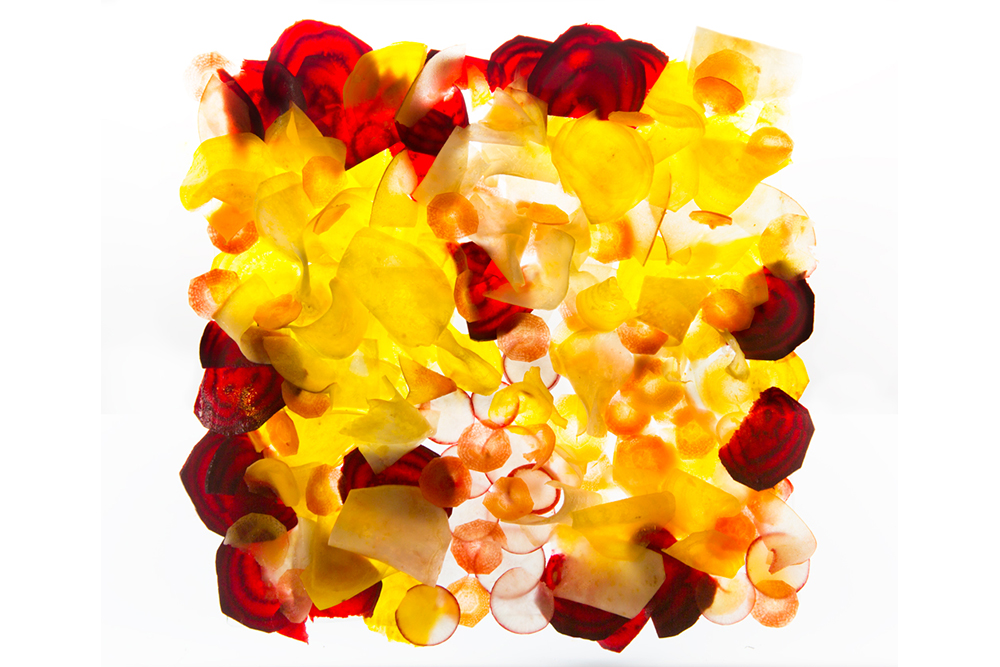
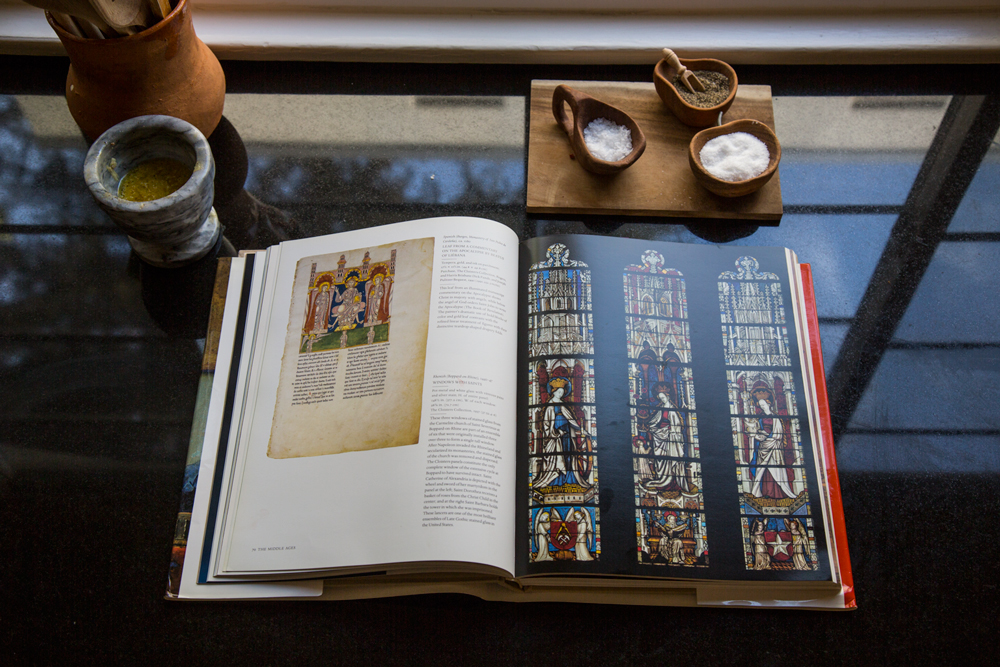
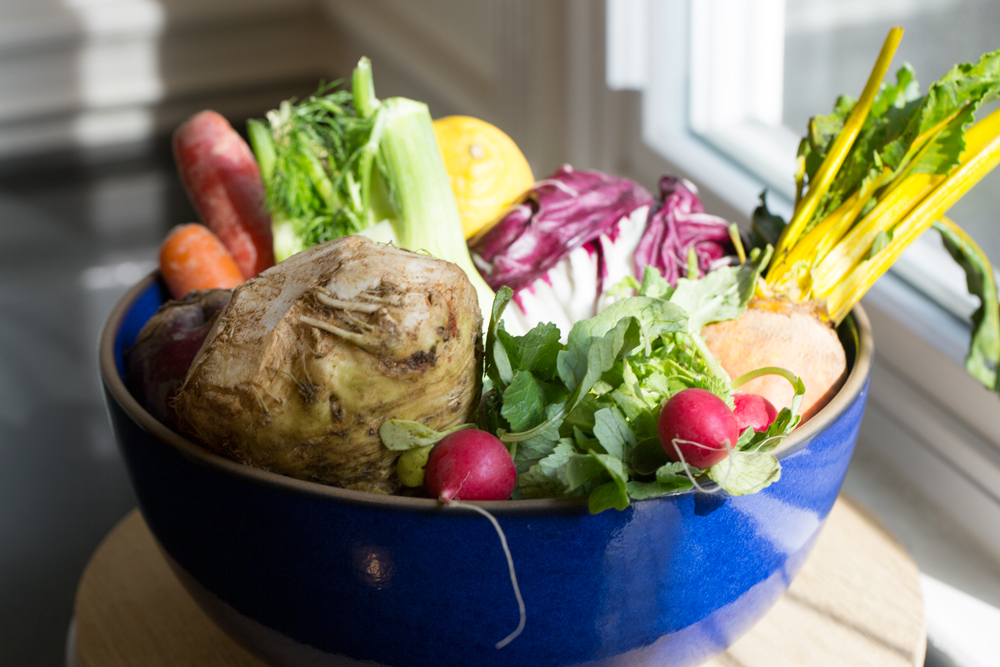
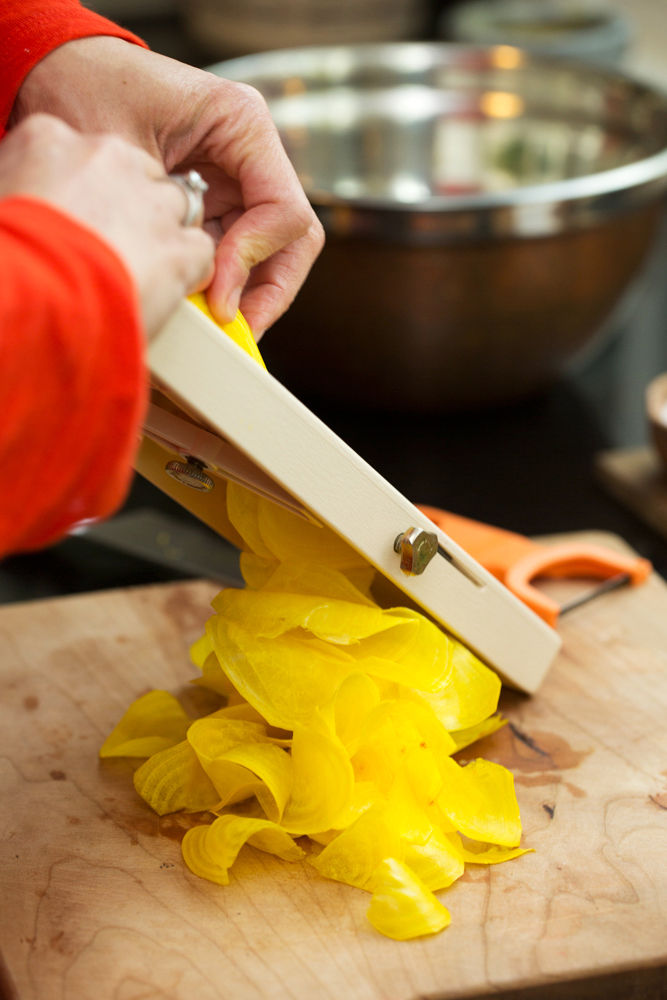
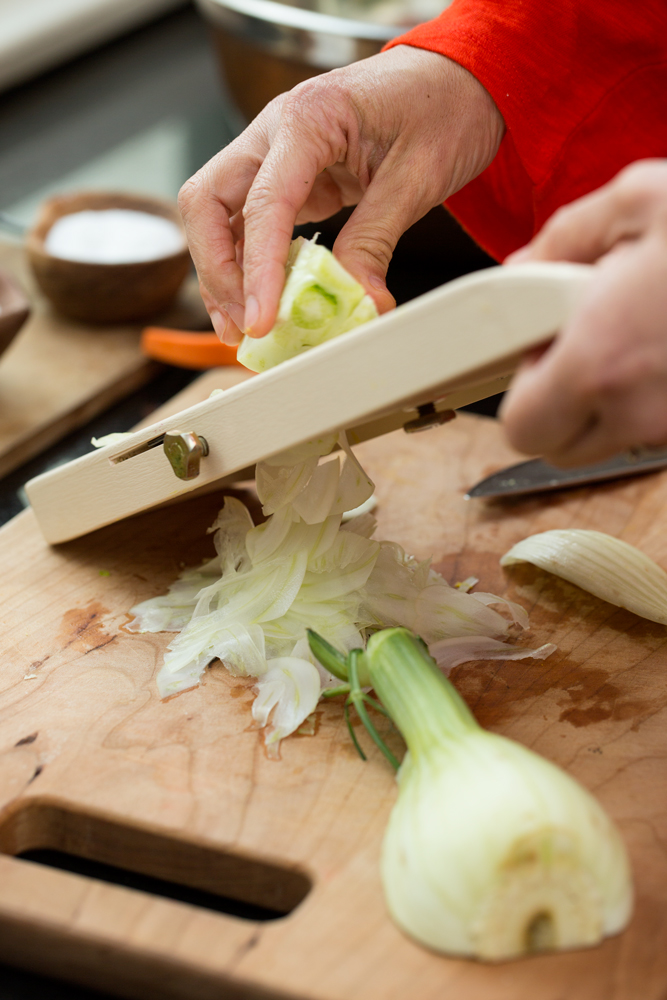
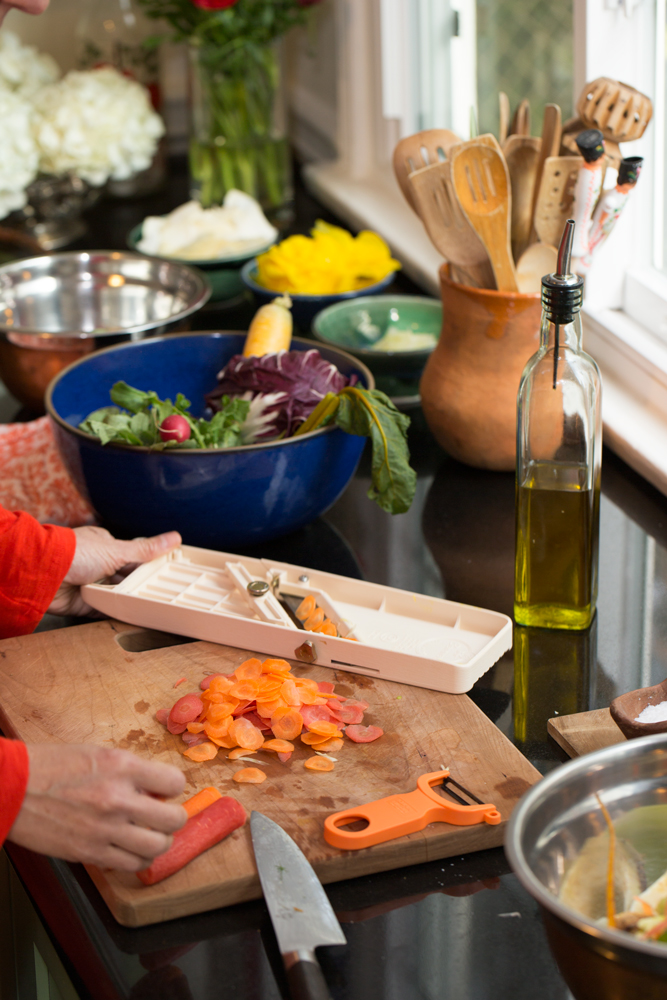
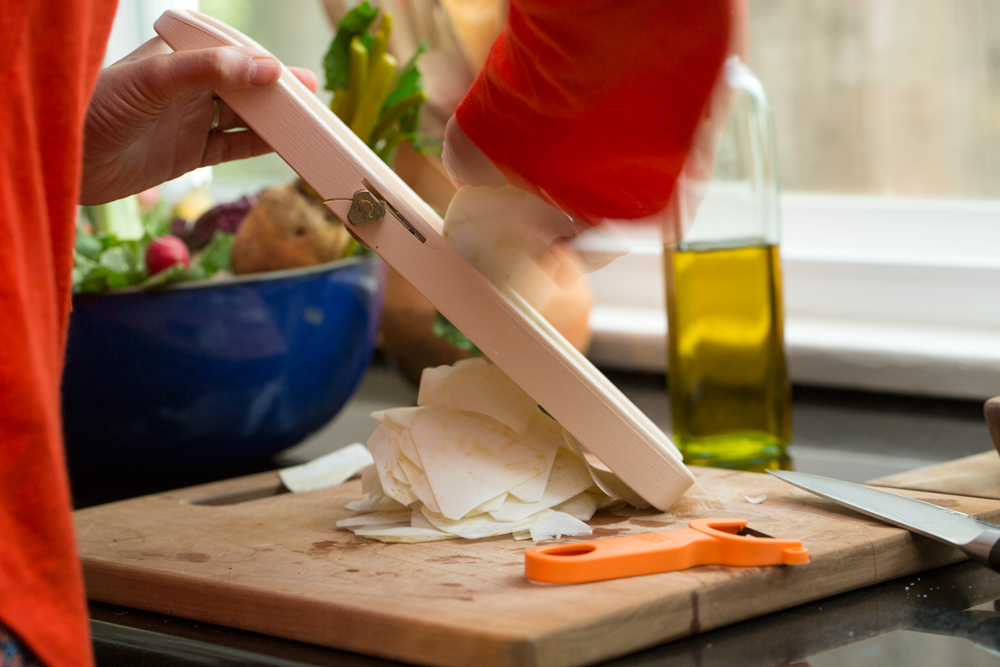
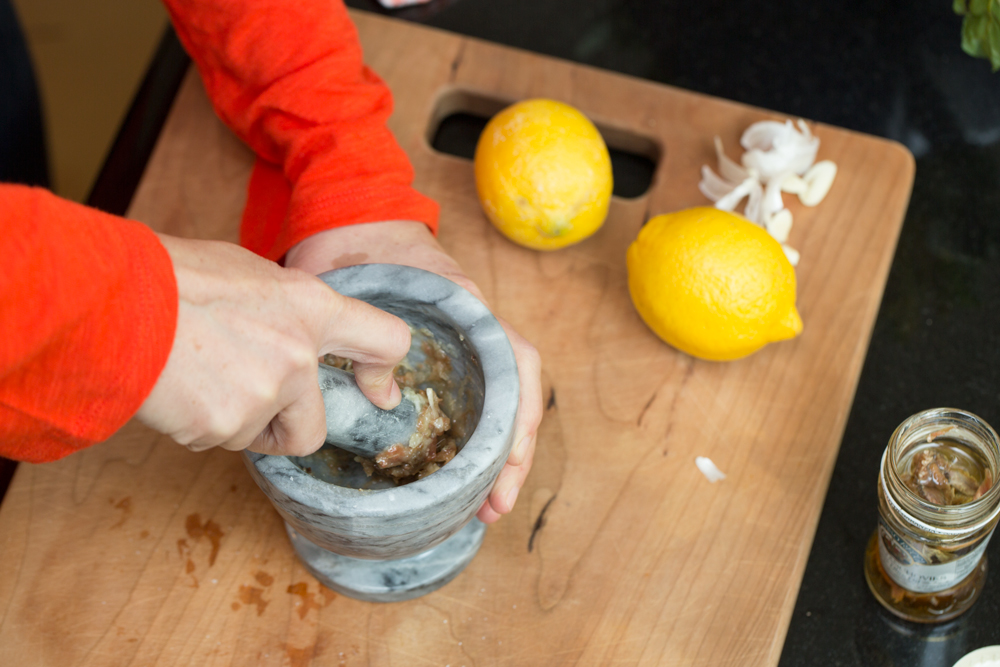
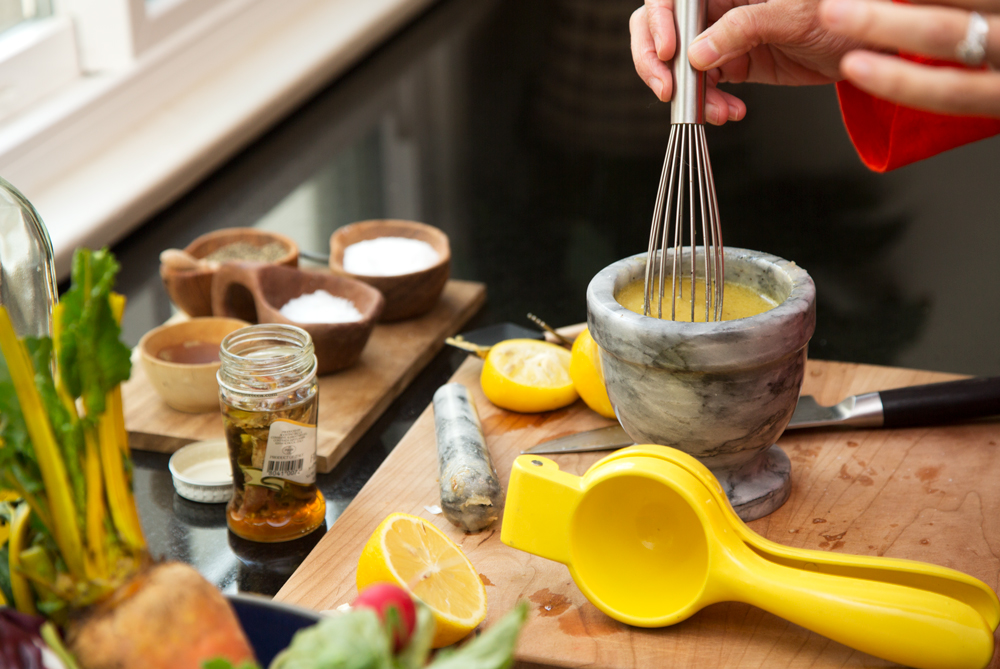

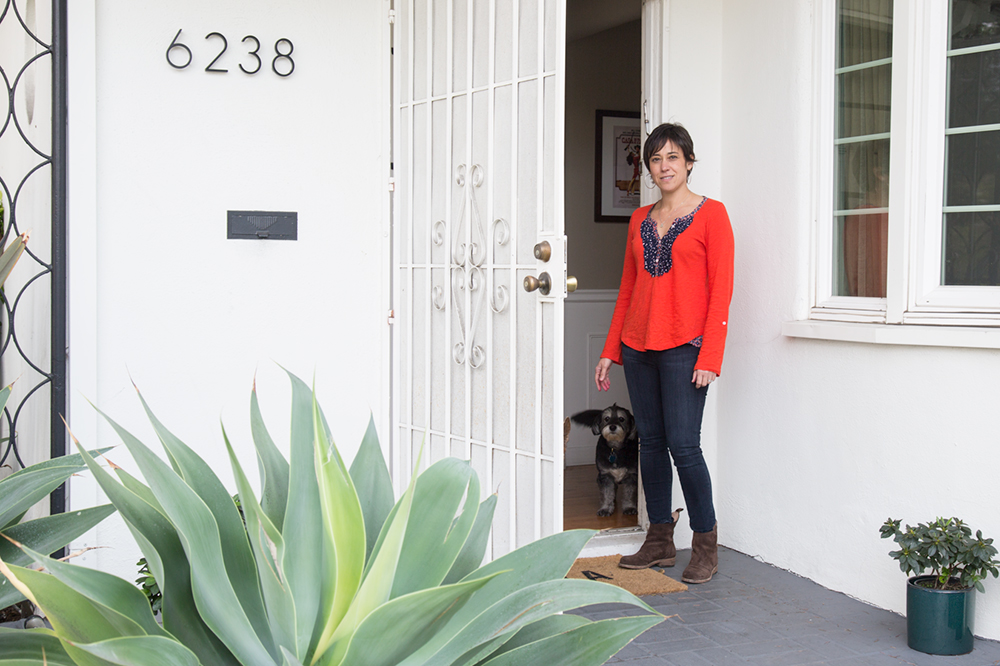
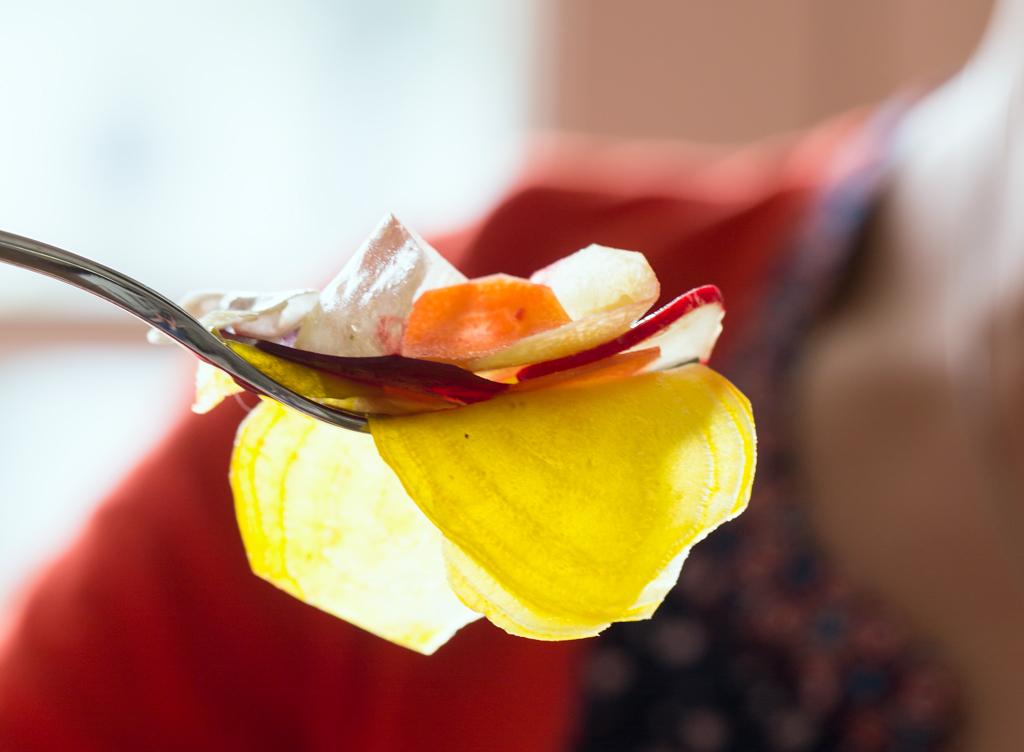
POSTED UNDER
- Fall,
- los angeles,
- Winter
NOTES
Great winter salad, and a perfect staple dressing for your repertoire.
RECIPE
DIFFICULTY
MODERATE
SERVES
4
PREP TIME
10 MINS
Salad
-
1red beet
-
1golden beet
-
2carrots, preferably heirloom for color
-
1celeriac
-
1fennel bulb
-
1bunchred radishes
-
1SWEET APPLE, PEEL ON (USE GALA, BRAEBURN, SOMETHING REDDISH, NOT GREEN)
Dressing
-
1ANCHOVY (OR MORE IF YOU ARE AN ANCHOVY LOVER)
-
1garlic clove
-
1LEMON, JUICED
-
1tspDijon Mustard
-
1/4cupolive oil
-
salt and pepper to taste
POSTED UNDER
- Fall,
- los angeles,
- Winter
I moved to Los Angeles in 2007, fresh out of art school and looking for a purpose. I contacted Maite Gomez-Rejon to see if she needed any help with her new business, ArtBites, an educational platform that weaves together art history and cooking. ArtBites conducts special classes to tour museum collections at MoMA, The Metropolitan Museum, The Huntington Gardens, LACMA and The Getty, studying artworks as a method for tracing culinary histories. Maite describes herself as, “a cross between Rachael Ray and Sister Wendy,” which, if you know me at all, you know that nuns + art + food are my fantasy trifecta.
Maite started out as a sculptor herself, receiving her MFA from The Art Institute of Chicago, but eventually found that she had more fun cooking for friends than sitting in her studio (I don’t blame her). After school, she decided to go to culinary school at FCI. From there, she landed a prestigious internship in Brittany, France, cooking in an upscale French restaurant, which proved for her once and for all that the commercial kitchen was not her raison d’être. She packed her bags, and traveled around France eating and drinking, and contemplating where to go from there. Maite’s native TX was the next stop, where she taught Art History at a Community College, and began weaving the history of food into her curriculum. The kids loved it, and when she got a job in the education department at The Getty Museum, she finally had the chance to synthesize her passion for food and art, developing art classes that incorporated hands-on cooking. People were engaged in a very different way. Art suddenly became relatable and accessible — ah, the holy grail.
Maite Gomez-Réjon in Her Own Words
Julia: What is the most valuable skill you learned working in a French Kitchen?
Maite: How to stand up for myself.
Julia: How did your first classes for ArtBites come about?
Maite: While I was still at FCI, I was researching a medieval tapestry at The Met and I happened upon a bunch of cookbooks. That was the first “aha!” moment. I wondered what every person in every portrait hanging in the museum was eating? What the artist was eating?
The first classes I developed at the Getty were based on Greek and Roman themes.
I quit my job there to pursue these connections as an independent business. It took me 7 years to get there, but now it seems the possibilities are endless!
Julia: Tell me a little about Medieval stained glass and how that inspired this salad?
Maite: I developed a class for an exhibit at the Getty of these stained glass windows from Canterbury Cathedral. (They’ll be at The Cloisters later this year).
Vegetables were an important, everyday food group in the Middle Ages, but they were hardly ever mentioned in the cookbooks. Their preparation was so simple – basically raw and tossed with oil and vinegar – they didn’t want to waste precious vellum or parchment on recording the recipes. We think of the Medieval diet as meat-based, but raw salads were considered an excellent way to begin a meal.
I thought of using shaved root vegetables because they’re hearty and colorful and would be reminiscent of the stained glass windows in the exhibit.
Julia: What is up with this dressing you made for our salad? I want to dip my face in it.
Maite: I’m obsessed with this anchovy dressing, I put it on everything. It’s an Amanda Hesser recipe.
Julia: What art history inspired dish was the most fun for you to make with a group?
Maite: One of my favorite dishes might be the “Oasis Leek Tart” in Salvador Dali’s book, Le Diners de Gala (if you don’t know this book you must check it out). The leek and Gruyere filling is pretty traditional, but we sculpted a leek into a palm tree to put in the center. Fun to make and delicious.